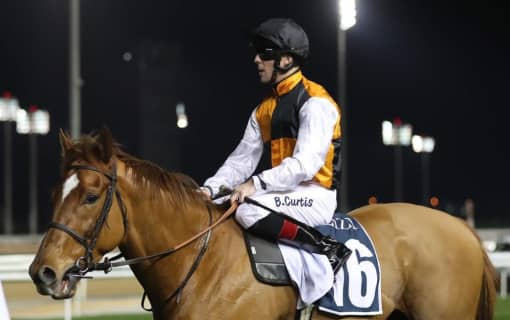With the November Meeting at Cheltenham Racecourse already behind us, another season of jump racing is well and truly underway. From Carlisle to Kempton, a packed schedule of top-class racing awaits this winter, with the action culminating in the two biggest races of the National Hunt calendar, the Cheltenham Gold Cup and The Grand National at Aintree.
Ahead of these two iconic races, we’ve taken a specific look at The Grand National and the top 10 greatest winners in the history of this world-renowned event. After all, The Grand National was first run in 1839, with the race being designed as the “the ultimate test of horse and rider.”
Not only is the gruelling course the longest in National Hunt racing, a lung-busting 4 mile 2 ½ furlongs but it also features 30 of the largest, most perilous fences and hurdles at any racecourse. As a result of the extreme pressure on both horse and jockey, The Grand National attracts the largest prize pot for any jump race in Europe, with total winnings of over £1m.
The race attracts approximately 9m viewers in the UK alone, with over 600m people tuning in globally across 140 countries and with 70,000 attending Aintree on the big day itself, The Grand National is the most popular horse race anywhere in the world.
With the victor achieving racing immortality, there have been both memorable names and great races that have become Grand National folklore. Choosing the top 10 winners from the illustrious history of this race has been tough but here’s our favourites:
Red Rum – Winner in 1973, 1974 and 1977
Regarded as one of the greatest racehorses of all time, Red Rum dominated the Grand National in the 1970’s. Winning the race three times, finishing second in the intervening years (1975 and 1976) and never having fallen in over 100 races, Red Rum is considered by many as the saviour of The Grand National.
Indeed, Red Rum is the only horse to have ever won three Grand Nationals and his victories in 1973 and 1977 have gone down in history as two of the greatest rides ever seen at Aintree. In 1973, Red Rum clawed his way back from a 30-length deficit to pip Crisp at the post and win his first Grand National. A race many consider to be the greatest of all time, even the most ardent racegoer could not have imagined what Red Rum would achieve in 1977. Racing under top weight at a grand old age of 12, Red Rum blitzed the opposition, winning by a staggering 25 lengths.
Given his record in five attempts, it is unlikely we’ll ever see another horse master the Aintree course quite like Red Rum.

Tiger Roll – Winner in 2018 and 2019
Since the exploits of Red Rum in the 1970’s, it had been 45 years since a horse had won back-to-back Grand Nationals, but Tiger Roll was no ordinary horse. After dazzling fans with a tight victory over Pleasant Company in 2018, the most popular horse since Red Rum was able to defend his Grand National crown with a comprehensive victory in 2019.
A new Grand National hero had been crowned and it was only the Covid-19 pandemic that prevented Tiger Roll from attempting a record-equalling third successive victory. His back-to-back wins in 2018 and 2019 put him in a very elite group of only four horses to have achieved this feat and history tells us we could be waiting quite some time to admit another member to this club.

Mr Frisk, 1990 – The Fastest Ever Grand National Winner
Hurtling round the exhausting circuit in just 8 minutes and 47.8 seconds, Mr Frisk’s 1990 demolition of the course came as a surprise to many. Mr Frisk set a brutal pace from the start and after the only horse to challenge him, Uncle Merlin, unseated his rider leaving Mr Frisk to race in splendid isolation and completely unchallenged around the second half of the course.
What’s even more astonishing about Mr Frisk’s victory is that his rider Marcus Armytage was not a professional jockey and became the last amateur to win the great race.

Foinavon, 1967 – Winner of The Craziest Grand National in History
The 1967 running of The Grand National will forever be remembered for the meleé at the 23rd fence which saw the majority of the field fall, refuse to jump or become embroiled in the chaos which ensued.
With odds of 100-1 and the horse’s trainer Cyril Watkins having so little confidence in his steed that he didn’t even attend Aintree that day, Foinavon emerged as one of only 12 horses from the original 40 to make it through the confusion.
By the time the remaining pack had made it over the fence, Foinavon was already 30 lengths clear and streaking away for one of the most improbable victories in Grand National history. So infamous was this race, that the 23rd fence at Aintree was permanently renamed Foinavon in 1984.

Amberleigh House, 2004 – A Winner for the nostalgic racing fan
Famed trainer and one of racing’s great characters Ginger McCain had achieved incredible success with Red Rum in the 1970’s but had not trained the winning horse in nearly 30 years.
In 2004, the unfancied Amberleigh House not only delivered a victory for racing nostalgia, but the manner of his victory was also highly impressive. Not even in the frame at the final fence, Amberleigh House kicked on to record a hugely memorable victory for the Merseyside faithful.
A staggering 31 years after his first win, the ever-popular McCain had a fourth title, becoming only the third trainer in history to achieve this feat.

Don’t Push It, 2010 – Finally a win for the greatest jump jockey of them all
Sir AP McCoy is widely regarded as the greatest jump jockey of all time but for the vast majority of his career, The Grand National had eluded him. By 2010, the man nicknamed ‘Champ’ was already a 14-time Champion Jockey, had ridden over 3,000 winners and had already claimed the Cheltenham Gold Cup in 1997 but he was never able to win the big one.
In 2010 however, at his 15th attempt and aboard a well-fancied JP McManus horse Don’t Push It, McCoy was finally able to conquer The Grand National as his trademark strong drive at the last propelled his horse to victory.

Neptune Collonges, 2012 – The closest win in Grand National history
Only three grey horses have ever won the Grand National and no grey had won in over 50 years by the time Neptune Collonges claimed victory in 2012. After a nose-to-nose battle with Sunnyhillboy that required every blade of the Aintree turf for victory, officials deliberated over the photograph for a minute and a half to try and decipher the winner.
Retired directly after the race at the age of 11, Neptune Collonges’ 2012 win was the first for trainer Paul Nicholls and the last time a grey horse won The Grand National.

Aldaniti, 1981 – The most improbable Grand National win
Both horse and jockey had almost been written off ahead of the race – Aldaniti had suffered two serious tendon injuries which nearly saw him euthanised and jockey Bob Champion had fought through testicular cancer after his illness was considered practically untreatable by doctors.
In what was one of the most endearing wins in Grand National history, Bob Champion and Aldaniti kick-started a season of celebration in Britain which included a royal wedding and an infamous Ashes victory.

Earth Summit, 1998 – The completion of a historic British National treble
Earth Summit was fancied to be a great racehorse but shortly after winning the Scottish Grand National in 1994, he suffered a near fatal injury in what was his only fall in a 37-race career.
Similar to Aldaniti, Earth Summit was written off as a potential challenger but returned in December 1997 to win the Welsh Grand National which was followed by Grand National victory the following April.
In winning at Aintree, Earth Summit became the only horse in racing history to have completed Britain’s National treble.

Red Marauder, 2001 – Winner of the Slowest Grand National Ever
The 2001 edition of The Grand National will live long in the memory as one of the most insane in history. Perhaps only matched by the craziness of Foinavon in 1967, 2001 is best remembered for the diabolical and dangerous conditions in which the race was contested.
The saturated track caused absolute carnage with only four horses actually finishing the race! Combine the conditions with multiple loose horses scattered around the track causing chaos, only two horses and their riders made it through the mire, setting up a straight shootout between Red Marauder and Smarty.
A brave ride from a brave horse, Red Marauder broke clear from Smarty to win the slowest Grand National for 100 years.








